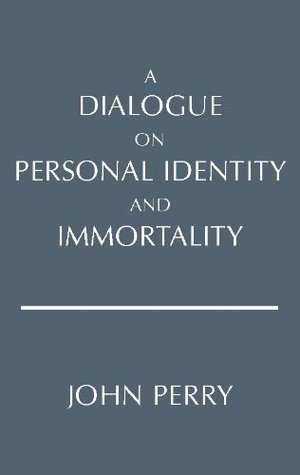More on this book
Kindle Notes & Highlights
Read between
August 23 - September 29, 2022
Even the possibility of something quite improbable can be comforting, in certain situations.
Hope provides comfort, and hope does not always require probability. But we must believe that what we hope for is at least possible.
What is fundamentally you is not your body, but your soul or self or mind.
Your mind or soul is immaterial, lodged in your body while you are on earth. The two are intimately related but not identical.
Similarity of psychological characteristics—a person’s attitudes, beliefs, memories, prejudices, and the like—is observable. These are correlated with identity of body on the one side, and of course with sameness of soul on the other. So the correlation between body and soul can be established after all by this intermediate link.
The soul or mind is just that which is responsible for one’s character, memory, belief.
Sameness of body would not necessarily mean sameness of person. Sameness of psychological characteristics would not necessarily mean sameness of person. I am saying that if you do know who I am then you are wrong that personal identity consists in sameness of immaterial soul.
little philosophy turns one away from religion, and more philosophy makes one a pain in the neck.
person is just a whole composed of such stretches as parts, not some substance that underlies them, as I thought yesterday, and not the body in which they occur, as you seem to think. That
Identity is not, so to speak, something under the person-stages, nor in something they are attached to, but something you build from them.
He suggests that the relation between two person-stages or stretches of consciousness that makes them stages of a single person is just that the later one contains memories of the earlier one.
Locke’s insight is to take this relation as the source of identity and not just its consequence. To remember—or more plausibly, to be able to remember—the thoughts and feelings of a person who was conscious in the past is just what it is to be that person.
Survival is possible, because imaginable. It is imaginable, because my identity with some Heavenly person is imaginable. To imagine it, we imagine a person in Heaven who, First, seems to remember my thoughts and actions, and Second, is me.
Now, it is memory plus lack of competition, the absence of other rememberers, that is needed for personal identity.


